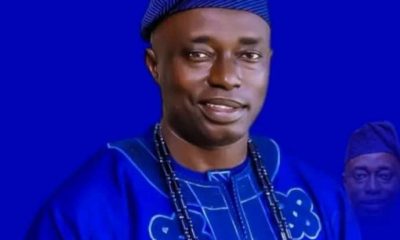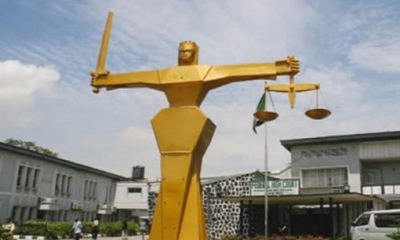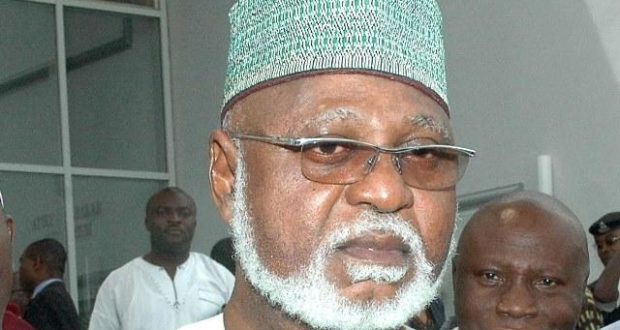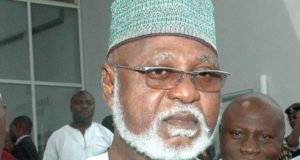Abdulsalami Alhaji Abubakar and eminent lawyer and statesman, Professor Ben Nwabueze have also weighed in on the debate on restructuring.
While Abdusalami advised those agitating for the restructuring to follow due process, Nwabueze stressed the need for Nigeria to return to true federalism. According to him, the widespread clamour for restructuring was not aimed at breaking up the country but to ensure fairness and equity for all irrespective of tribes or religion.
Among other things, he backed state police, saying, “the federating units in Nigeria need to have their separate and independent police force to conform with the requirements of federalism.”
However, speaking in Zamfara State during a courtesy visit to Governor Abdul’Aziz Yari Abubakar at the Government House, Gusau, Abdusalami said: “For those agitating for restructuring, let do it in the normal way for Nigeria to remain peaceful and for everybody to get what is wanted.”
He added that the call for restructuring was not new, but warned agitators against overheating the polity.
“From 1960 when Nigeria got independence, many restructuring have taken place. We had three regions; then we had Mid-West region, later we had nine states, then 12 states, 19 states and now 36 states,” Abubakar added.
To Prof. Nwabueze, chairman of The Patriots, Nigeria is a federation in name and not in practice. He therefore, called for the restructuring of the country to reflect its true status to ensure a new beginning.
“The object of restructuring for which there is a widespread clamour among Nigerians is not to break up the country or to enable agitators to secede from its sovereignty and territorial integrity. Far from that. The object is, by reforming the governmental structures and attuning them to the needs and wishes of the people, ensure that the immense diversity of ethnic nationalities comprised in the state will continue to co-exist together in peace, prosperity and progress as citizens of one country united by common interests, common aspirations and a common destiny,” he said in a statement he issued in Enugu.
“The clamour for re-structuring must, therefore, be seen as a clamour for the setting up of appropriate platforms or fora to renegotiate suitable governmental structures for the pursuit and realization of our common needs for development, good governance and national transformation.
“In short, the clamour for re-structuring is more than a clamour for the reform of our governmental structures. This is only its primary focus. In its wider, more fundamental focus, it is a call for Nigeria to make a new beginning under a new Constitution approved and adopted by the people at a Referendum, a new politico-legal order that will cleanse the country of the rottenness that pervades it and enable to chart a roadmap for its destiny or what has been referred to as restructuring of the mind.
“This aspect of re-structuring, which is as necessary as its primary focus, will need to be led by a president, as the elected leader of the people, imbued with an ardour for national transformation.
“The governmental structure that needs particularly to be reformed by restructuring is our federal system.
Federalism is commonly agreed to be a compelling necessity for the maintenance of peace, stability and development of Nigeria as one country.
“The 1960/1963 Constitutions of Nigeria established a federal system with three (later four) regions each invested with sufficient autonomy to govern itself in matters that concerned it alone – internal self-government – without undue control by or interference from, the centre, thus giving each region the impetus and incentive to develop optimally in healthy competition with the others.
“The federal system under the two Constitutions (1960 and 1963) may fairly be described as a model of true federalism. Regrettably, the intrusion of absolutist military rule for 28 years after 1965 has brought about the accretion of a vast amount of additional powers to the centre, over and above what they were under the 1960/63 Constitutions, resulting in the system being turned virtually into a unitary system; the system is still tagged federal, but it is so largely in name. There are certain matters involved in this; undue concentration of powers and financial resources at the centre that need to be specifically mentioned.”

 News5 days ago
News5 days ago
 News4 days ago
News4 days ago
 News3 days ago
News3 days ago
 Crime5 days ago
Crime5 days ago


